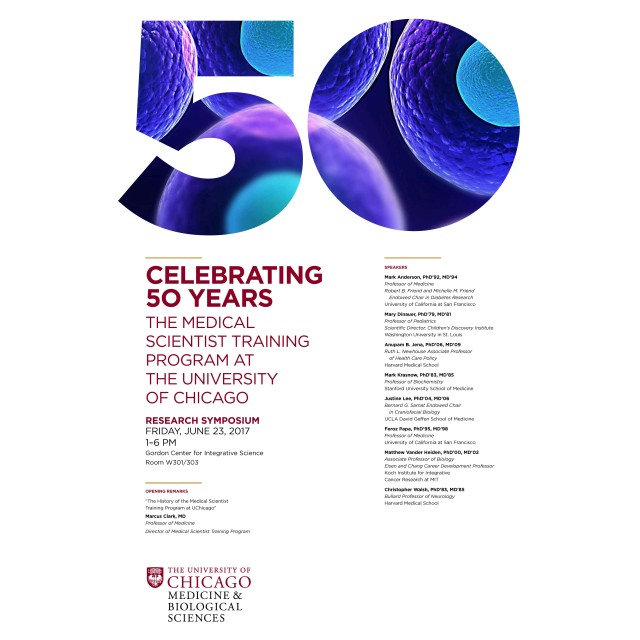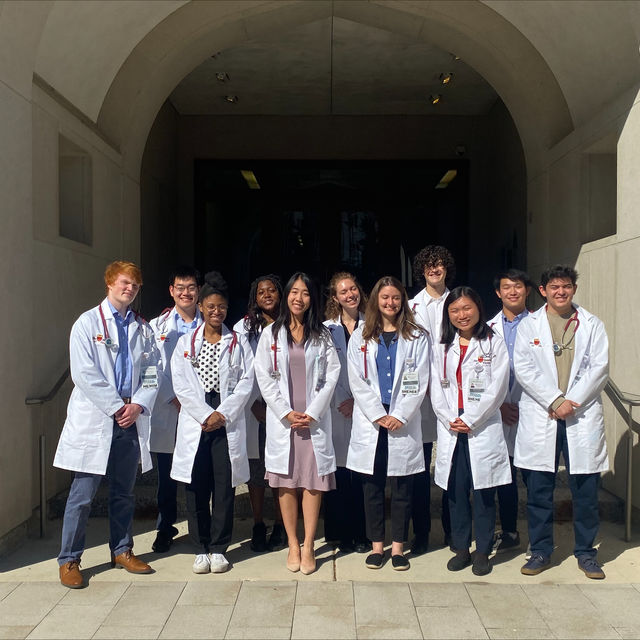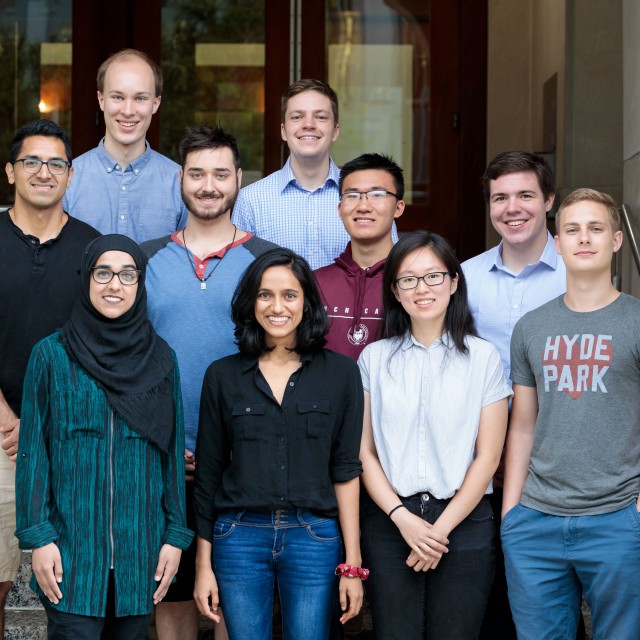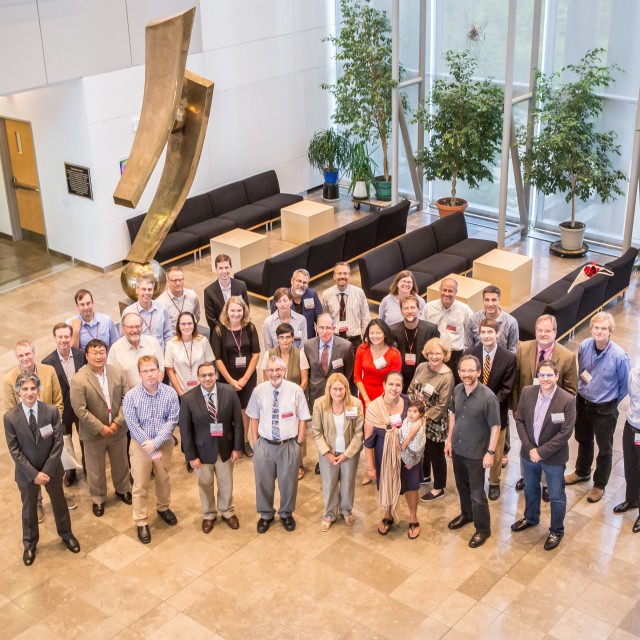
MSTP
Program & Curriculum Overview
A hallmark of the University of Chicago’s Medical Scientist Training Program is our unique curriculum wherein students graduate with an Interdisciplinary Scientist Training Program (ISTP) PhD. This novel, highly adaptable program allows students full access to the superb graduate faculty within the Division of Biological Sciences, the Division of Physical Sciences, and the Pritzker School of Molecular Engineering. Other areas of study are possible, on a case-by-case basis as well.
Our MSTP is a community of scholars dedicated to research, academic excellence, and the pursuit and cultivation of learning. Members of the MSTP community cannot thrive unless each is accepted as an autonomous individual and is treated without regard to characteristics irrelevant to participation in the life of the University, in accordance with University policy. Read more about the University policy on Title IX Sexual Harassment. Further, in accordance with University policy, our MSTP communicates program policies, academic requirements, and milestones for our graduate degree program publicly. Read more about program policies in our MSTP Student Handbook.
Learn More about Our Program
Common Specializations
The ISTP allows students to pursue training in one field or to craft a unique course of study that integrates multiple disciplines. Such integrations reflect the evolution of biomedical research in which several disciplines are brought to bear on important questions in human disease.
- Cancer Biology
- Immunology
- Molecular Metabolism and Nutrition
- Ecology and Evolution
- Medical Physics
- Biochemistry and Molecular Biophysics
- Cell and Molecular Biology
- Genetics, Genomics, and Systems Biology
- Computational Neuroscience
- Neurobiology
- Chemistry
- Computer Science
- Molecular Engineering
- Quantum Medicine

Curriculum
The first year of the program combines both medical and graduate school classes. Students then typically begin their PhD thesis research work and return to the second year of medical school after a successful defense. This structure ensures a focused, intensive research experience and preserves the continuity of clinical training. On average, MSTP trainees complete both degrees in eight years.
Graduates of the MSTP are awarded a MD from the Pritzker School of Medicine and a PhD from the graduate studies arm of the MSTP. The Pritzker School of Medicine is one of the top medical schools in the nation, and the curriculum is taught in small study groups that emphasize active learning and scholarship. Students earn the PhD degree in our one-of-a-kind and highly respected Interdisciplinary Scientist Training Program (ISTP). This unique and highly adaptable program allows you full access to the graduate programs within the Division of Biological Sciences, the Division of Physical Sciences, and the Division of Social Sciences.
The UChicago community, from faculty to MSTP administration to students, is incredibly supportive both personally and academically. In this environment, I have felt extremely well equipped to excel and make the most out of my training. ”

Funding: NIGMS T32
The University of Chicago's Medical Scientist Training Program is one of the oldest continually-funded MSTP's in the country.
Funded in part by a National Research Service Award from the NIGMS since 1975, our T32 grant was renewed in 2018 for an additional 5 years. We currently have 22 appointment slots, with additional support for NIH OxCam scholars.
From the NIH:
"The goal of the NIH Medical Scientist Training Program (MSTP) is to develop a diverse pool of highly trained physician-scientist leaders available to meet the Nation’s biomedical research needs. Specifically, this T32 provides support to eligible domestic institutions to develop and implement effective, evidence-based approaches to integrated dual-degree training leading to the award of both clinical degrees, e.g., M.D., D.O., D.V.M., D.D.S., and research doctorate degrees (Ph.D. or equivalent). With the dual qualification of rigorous scientific research and clinical practice, graduates will be equipped with the skills to develop research programs that accelerate the translation of research advances to the understanding, detection, treatment and prevention of human disease, and to lead the advancement of biomedical research. Areas of particular importance to NIGMS are the iterative optimization of MSTP training efficacy and efficiency, fostering the persistence of MSTP alumni in research careers, and enhancing the diversity of the physician-scientist workforce. NIGMS expects that the proposed research training programs will incorporate didactic, research, mentoring and career development elements to prepare trainees for careers that will have a significant impact on the health-related research needs of the Nation."



